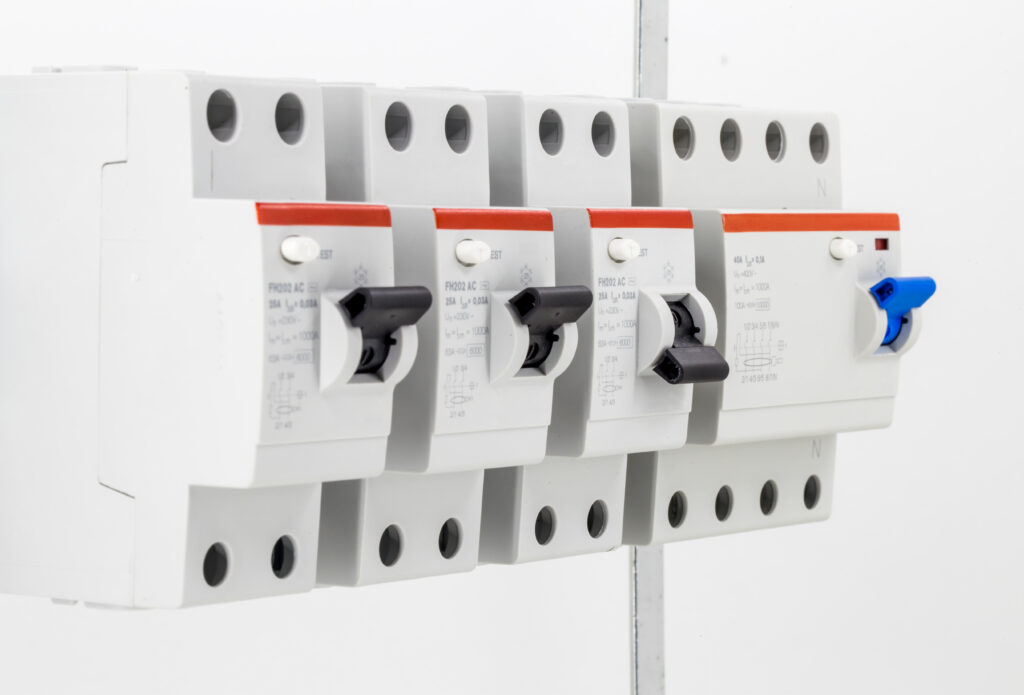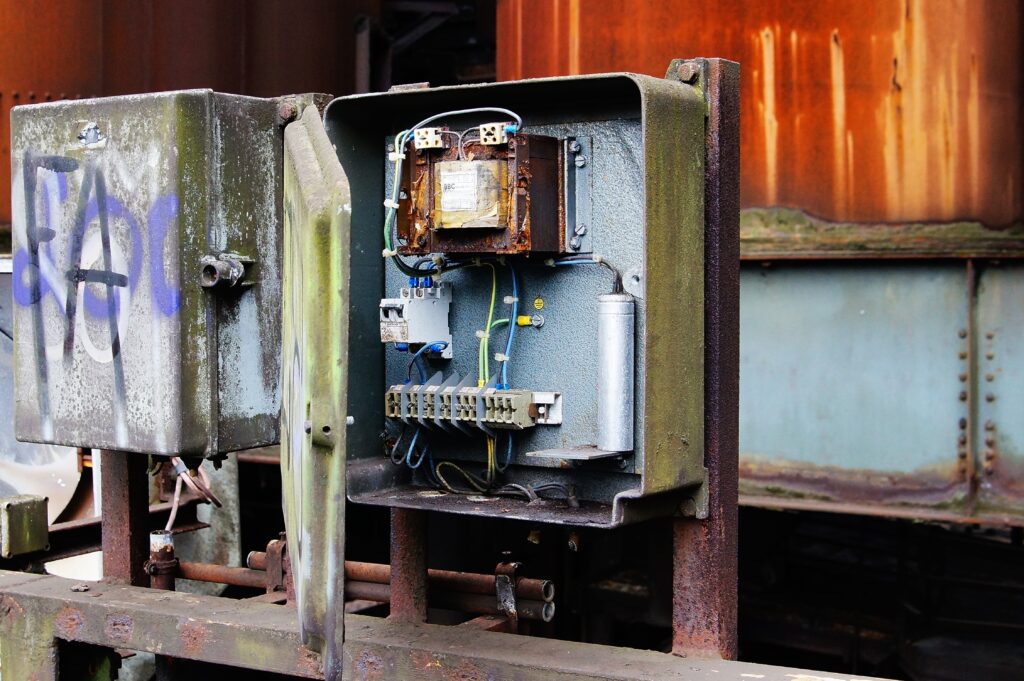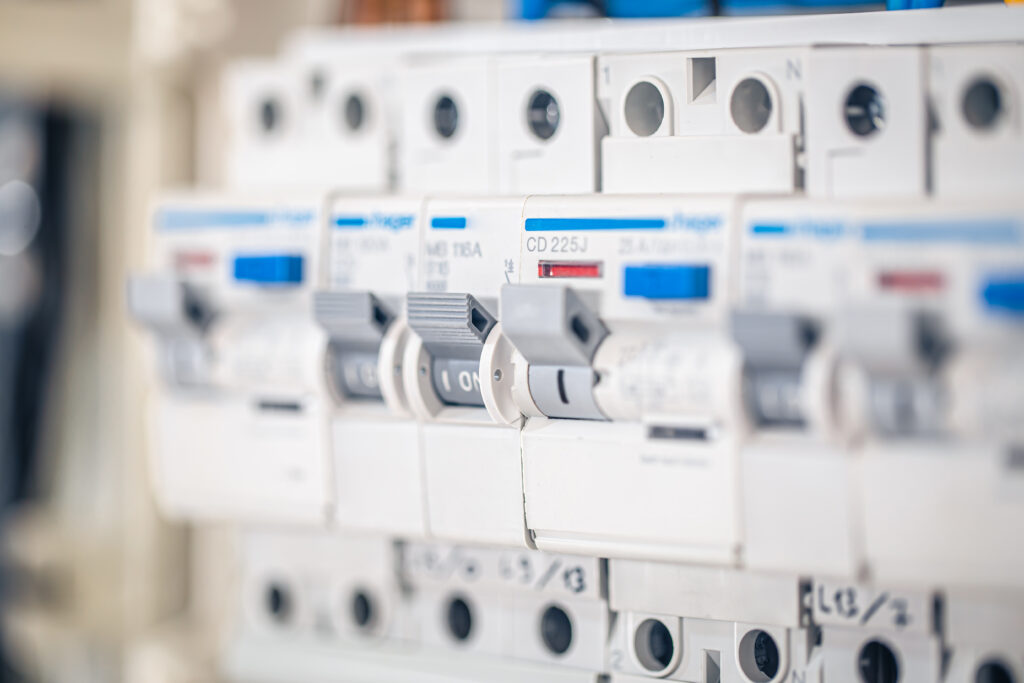Just last month, a business owner in Boca Raton called us in a panic. His restaurant suddenly lost power right before the dinner rush. After checking the main panel, he noticed one of the breakers had blackened and was hot to the touch. Thankfully, he called our team immediately. We arrived within the hour, shut down the panel, and discovered a burnt wire and a severely overheated breaker. Had he waited longer, it could have sparked an electrical fire and endangered staff and customers.
Situations like this happen more often than you might think. According to the U.S. Fire Administration, electrical failures are among the leading causes of residential and commercial structure fires—and the electrical panel is often at the center of the problem. Whether you’re a homeowner in Palm Beach Farms or a store owner in Royal Palm Plaza, knowing how to identify emergency electrical panel issues can help you avoid expensive damage—or worse, serious injury.
In this guide, we’ll walk you through the 7 most urgent signs of electrical panel trouble and give you actionable advice on what to do next. If you notice any of these issues in your home or business, it’s time to call a professional electrician immediately.
What Is an Electrical Panel and Why Is It So Important?
Your electrical panel—also known as a breaker box or service panel—is the central hub of your property’s entire electrical system. It distributes electricity from your utility provider to different rooms and appliances through a network of circuits.
Each circuit is protected by a breaker that shuts off when there’s too much current flowing, helping to prevent overheating, electrical fires, and damage to your devices. But when the panel itself becomes damaged, outdated, or overloaded, its safety features can fail—putting everything at risk.
When Do Electrical Panel Issues Become Emergencies?
If the panel starts to overheat, make noise, or shut off power without warning, you could be facing a serious and urgent problem. Some of these situations can quickly lead to electrical fires, while others can permanently damage your home’s wiring, appliances, or even risk electrocution.
Let’s look at the seven most critical emergency electrical panel issuesto watch for.
1. Breakers That Won’t Stay On

Sometimes, a breaker trips to protect your home from too much current—that’s normal. But when a breaker won’t stay on, even after you reset it once or twice, it usually means something deeper is wrong.
What It Means:
Frequent tripping often indicates an overloaded circuit, short circuit, or ground fault. If the problem is inside the panel—like a worn-out breaker or damaged bus bar—just resetting it won’t help and could make things worse.
What to Do:
- Unplug devices connected to that circuit
- Don’t force the breaker back on more than once
- Call a licensed electrician to inspect for faulty wiring or a failing breaker
Continued use of a faulty breaker can melt wires and increase fire risk.
2. Burning Smell or Heat Coming From the Panel
If you smell something like burning plastic or notice the panel or breakers feel hot, shut off the power and call for help immediately. This is one of the most dangerous electrical panel problems.
Why This Is Serious:
Heat and smells mean there’s arcing or overheating inside the panel, which can lead to melted insulation, damaged connections, or even ignition of nearby materials.
What to Do:
- If it’s safe, shut off the main breaker
- Do not use any appliances until the issue is resolved
- Contact a licensed electrician right away to prevent escalation
This type of issue should never be ignored, even if your power is still on.
3. Scorch Marks, Rust, or Discoloration on the Panel

Visual signs are just as important as sounds or smells. If you notice brown or black marks, corrosion, or unusual discoloration on your panel, something is overheating or moisture is getting inside.
What These Signs Indicate:
- Scorch marks suggest electrical arcing or melting
- Rust or corrosion points to water exposure
- Discoloration means breakers or wires may have overheated in the past
What to Do:
- Do not attempt to clean or fix the panel yourself
- Schedule a full inspection to determine the source of the problem
- Be prepared for a possible panel replacement if damage is extensive
Ignoring these signs can lead to system failure or fire without warning.
4. Frequent Power Loss in Specific Areas
Do certain rooms in your house or sections of your building lose power repeatedly, even when the weather is calm? This is likely caused by a problem inside your panel—not an external outage.
What Might Be Happening:
- A single breaker is failing
- A specific circuit is overloaded or poorly wired
- Your panel can’t keep up with your energy demands
What to Do:
- Track which areas are affected and when it happens
- Avoid using high-wattage devices on that circuit
- Call for an assessment of your panel and circuits
You may need to add new circuits or upgrade your service panel to support your property’s needs.
5. Your Electrical Panel Is Over 25 Years Old
Many homes in Boca Raton still have panels from the 1980s or 1990s. While they may seem functional, older panels often lack the safety features needed for modern power loads.
Why Old Panels Are Dangerous:
Some panel brands have been linked to unsafe designs that can fail to trip during a fault—leading to dangerous overheating or fires.
What to Do:
- Check the brand and age of your panel
- Schedule an upgrade if your panel is 25+ years old
- Upgrade to a modern panel with 200 amps and space for more circuits
A panel replacement not only boosts safety—it also prepares your home or business for future electrical needs.
6. Breakers Trip When You Use Everyday Appliances

If running the microwave, hair dryer, or coffee maker causes your breaker to trip, your system may be overloaded or outdated. This is especially common in homes with renovated kitchens, added appliances, or EV chargers.
Why It Happens:
- Your panel isn’t sized to handle today’s high-power devices
- You may be using shared circuits with too much draw
- Old breakers wear out and become more sensitive over time
What to Do:
- Avoid using multiple high-wattage devices on the same circuit
- Consider adding dedicated circuits
- Ask an electrician about a panel upgrade for more amperage
This will improve safety and reduce interruptions to your daily life or business operations.
7. Buzzing, Clicking, or Humming Sounds
A quiet panel is a healthy panel. If you hear strange soundslike buzzing, humming, or clicking from inside your electrical box, this is often a sign of electrical arcing, loose connections, or deteriorating components.
What You’re Hearing:
- Buzzing = arcing or faulty breakers
- Clicking = relays switching on/off under strain
- Humming = overloaded or failing components
What to Do:
- Stay away from the panel and avoid touching it
- Shut off the main power if it’s safe to do so
- Contact an emergency electrician immediately
Noise is never normal. It’s your system’s way of warning you that something’s wrong.
Residential vs. Commercial Emergency Panel Issues
Whether you own a home or a business, emergency panel problems can cause major disruptions. But the type of risk—and the speed of response required—can differ.
Residential:
- Affects family safety and daily comfort
- Often caused by outdated equipment, overloaded circuits, or DIY wiring
- Common in homes built before 1990 that haven’t been updated
Commercial:
- Power loss can stop revenue, shut down operations, or result in code violations
- Commercial panels handle higher loads—failures can be more dangerous
- Emergency systems like lighting, POS terminals, and alarms rely on stable circuits
In both cases, quick action is key. Delaying emergency panel repair can cause fires, equipment damage, and severe outages.
How to Prevent Emergency Electrical Panel Issues
Preventive maintenance can help you avoid the stress, cost, and danger of emergency repairs. Here’s how:
- Have your panel inspected every 3–5 years
- Upgrade old panels before adding new appliances or circuits
- Install whole-home surge protection to protect sensitive electronics
- Keep the panel area dry, clear of clutter, and well-ventilated
- Don’t ignore small signs like flickering lights, warm breakers, or tripping circuits
Being proactive gives you peace of mind—and may help you avoid an emergency call altogether.
How Can Boca Electrical Service Help You?
At Boca Electrical Service, we’re the trusted experts in identifying and resolving emergency electrical panel issues for homeowners and businesses in Boca Raton. Whether your panel is sparking, overheating, or simply outdated, we offer fast, safe, and professional service—24 hours a day, 7 days a week.
Here’s what we can do for you:
- Electrical panel repairs and upgrades
- Emergency troubleshooting and circuit testing
- Code-compliant panel replacements for outdated or unsafe systems
- Surge protection and load management solutions
- Honest advice, fast service, and licensed technicians you can trust
Visit us at:123 NW 13th St Suite 214-09, Boca Raton, FL 33432
Call now:(561) 320-8539
Don’t wait until your panel fails. Call Boca Electrical Service today—and let us protect your power, your property, and your peace of mind.
Frequently Asked Questions
How long does it take to replace an electrical panel?
Typically, replacing an electrical panel takes about 6 to 8 hours, depending on the complexity of the job and the condition of existing wiring.
Is it safe to replace an electrical panel myself?
No, replacing an electrical panel involves high-voltage work and must be performed by a licensed electrician to ensure safety and compliance with local codes.
How often should an electrical panel be inspected?
It’s recommended to have your electrical panel inspected every 3 to 5 years, or immediately if you notice signs of wear, overheating, or other issues.
Can a faulty electrical panel affect my appliances?
Yes, a malfunctioning panel can lead to inconsistent power supply, which may damage sensitive electronics and reduce the lifespan of your appliances.